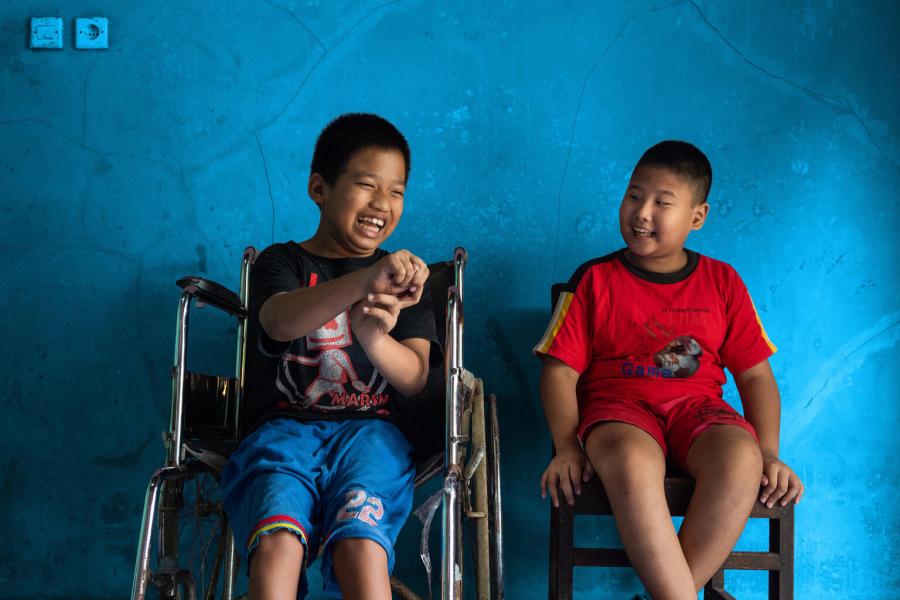UN report highlights disability data gaps in Indonesia
02 December 2022
--

People with disabilities are left behind. Unemployed, under-educated and still underrepresented in national statistics, their full and effective participation in society and equal access to basic services are hindered, according to a new report on disability data launched by the UN in Indonesia today. Published on the occasion of International Disability Day, 3 December, it is the first comprehensive analysis of the way people with disability are represented in government statistics.
Data is needed not only to highlight where deprivation and disparities exist, but also to develop evidence-based policies to address the needs of people with disabilities and related economic and social inequalities.
“To get the support of the government, people need to be made visible – and those living with disability are not,” said Valerie Julliand, the UN Resident Coordinator in Indonesia. “This is a major issue we are supporting the government in addressing.”.
According to the report, disability statistics in Indonesia remain insufficient as the data collected does not provide useful information about persons with disability, their needs, capacities and well-being. The aim of population statistics is not only to count people with disability, but also to consider what is needed to ensure that they are able to access education, buildings, transportation, employment, health services, legal services and political participation. Inclusive development is at the heart of the United Nations 2030 Agenda and the Sustainable Development Goals.
The UN and Statistics Indonesia (BPS) are working with groups representing people with disabilities to fill gaps in official statistics. “With correct data, the Government and development partners will be able to focus resources on supporting those who face disability challenges,” Ms. Julliand said.
The underreporting starts at the macro level: the ratio of Indonesians living with disability according to official government figures varies between 4% and 5% in stark contrast to the global average of 15%.
There are several reasons for the underreporting, according to the analysis:
- People with disabilities, particularly those with impaired vision or hearing, are often excluded, more reluctant or less able to participate in surveys than the rest of the population.
- The stigma associated with disability in the society at large means that many of those living with disabilities will not reveal it.
- Various government agencies have different ways of approaching disability issues and use differing definitions and methodologies for disability, making it difficult to reconcile and aggregate data.
This year's theme for the International Day of Persons with Disabilities is “Transformative solutions for inclusive development: the role of innovation in fueling an accessible and equitable world”. It is a reminder to ensure people with disabilities are not left behind. Transformative data solutions and innovations can help address this issue, Ms. Julliand emphasized.
The report was developed and prepared in cooperation with various stakeholders based on 2021 data; it is expected to be the starting point of official data collection on disability in Indonesia.
The UN in Indonesia also launched a repository of reports on disability-related topics by all agencies. It is available here: https://disability.un.or.id/
***


